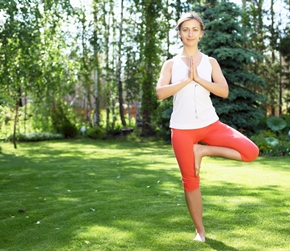
‘Core Stability’ is probably one of the most used and abused terms floating around health clubs, amongst health professionals and personal trainers. Chiropractors are seeing an increasing number of people who have fallen victim to an often misguided approach and undertaken exercise regimes that have led to back pain and/or related hip and leg problems which can be linked to improperly ‘training their core’.
‘Core stability training’ has often become mistakenly synonymous with ‘strengthening your abs’ (abdominal muscles). Unfortunately the real implications of research have often been misunderstood and many of the ‘core muscle training’ programmes offered within the gym and fitness industry are poorly conceived and delivered, frequently adopting directives such as ‘suck the stomach in” – with the emphasis on ‘pulling in’, ‘holding’ and curling the spine forward.
Overworking the abdominal muscles can create too much tightness around the centre of the body which can adversely affect important aspects of our body, for example, altered spinal posture and difficulty effectively controlling movements of the trunk, can lead to:
- Increasing incidence of low back pain and allied disorders
- Unhelpful and unsupportive breathing patterns
- Neck and shoulder tension and pain
- Stress urinary incontinence
In a healthy spine there is activation of deep core muscles in stabilization of the trunk before the body moves. This interaction between the deep core muscles and the nervous system plays a role in the proprioceptive feedback sent to the brain as we perform activities and undergo our normal activities. Core control is also fundamental in being able to develop functional strength as well as the ability to stretch more effectively and safely without reinforcing unhealthy stresses on the spine.
When you have good core stability, the muscles in your pelvis, lower back, hips and abdomen work in harmony. They provide support to your spine and help transmit increased power and performance for just about any activity. Strong core muscles provide the brace of support needed to help prevent pain and injury.
Stretch Of The Month
Spine Twist
- While lying face up on the mat, bend the right leg and place the right foot on the left knee.
- Slowly twist to the left while taking the right hand straight out on the floor, the left hand gently pressing on the right knee.
- Relax into the stretch and feel it in your lower back and hips.
- Hold for 15-30 seconds and repeat on the other side.
Towards Wellness
4 Foods to Help You Focus Better
If you think cognitive decline isn’t something that starts to happen until after age 60, think again. A new study from the British Medical Journal showed that cognitive decline—a decrease in memory and reasoning capacity—can start to affect our brains as early as 45! Give yourself a mental boost now with these four foods.
Leafy Greens – A 2006 study in Neurology showed that people who ate two or more daily servings of vegetables, especially leafy greens, had the mental focus of people five years their junior.
Whole Grains – Studies show that eating a breakfast of whole grains helps sustain mental focus better than a morning meal of refined carbohydrates or no breakfast at all.

